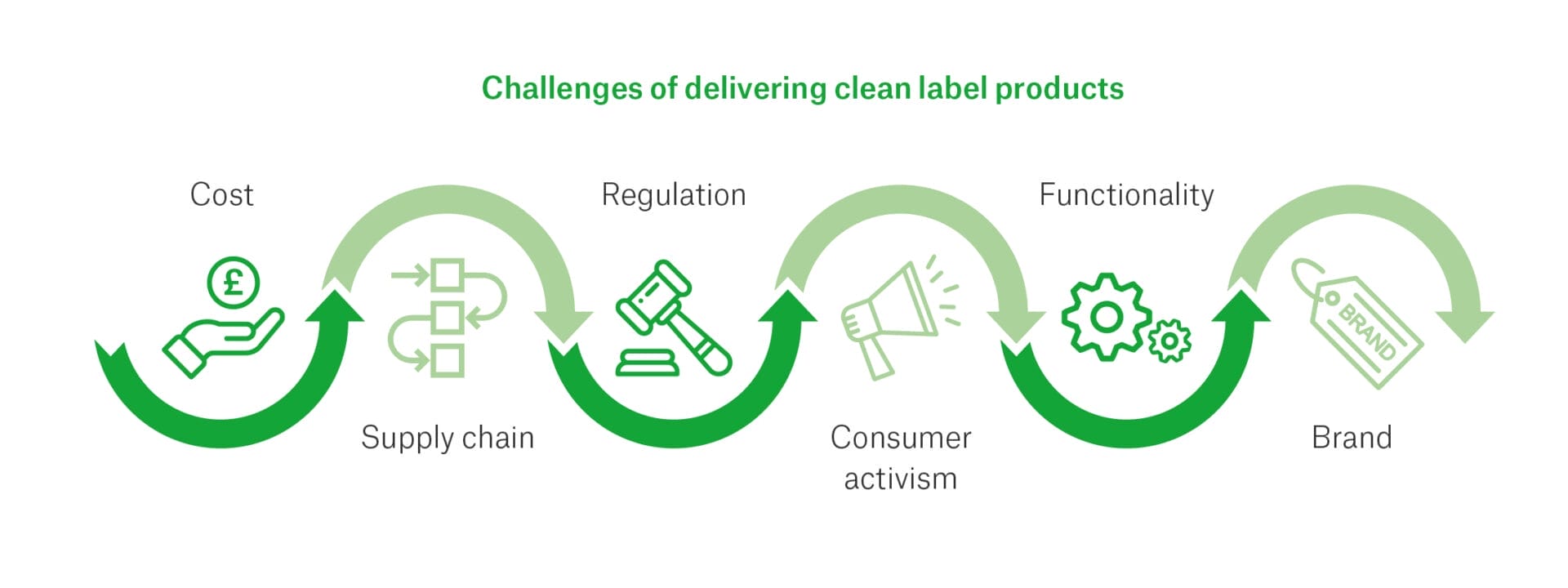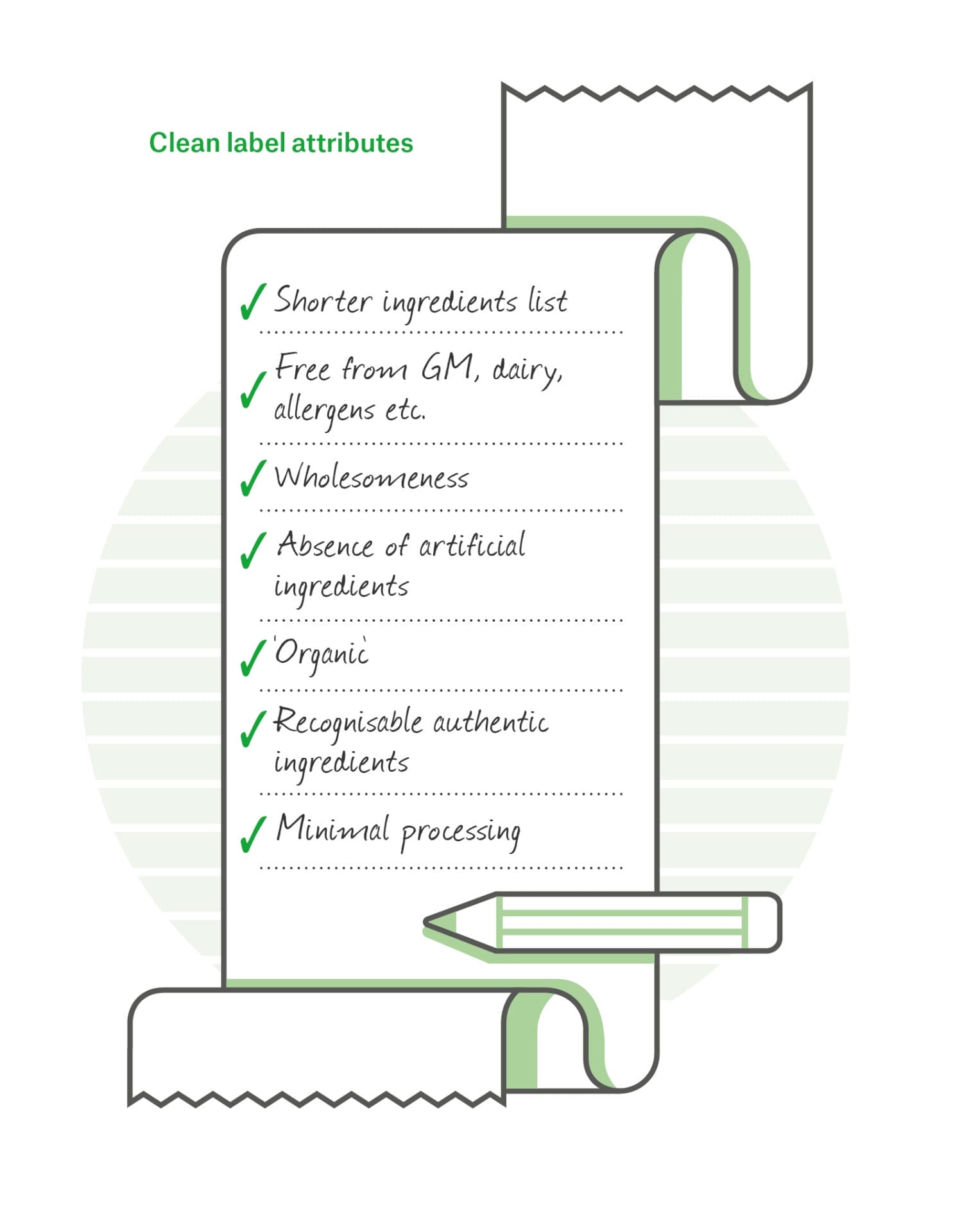How major food manufacturers can clean up their act
Today’s consumers are far more concerned with the integrity of the food and drink they consume. How should manufacturers of food and beverage products respond?
What is clean label?
Clean label is the term which describes the consumer demand for naturally, minimally processed food and beverages containing as few ingredients as possible. Overwhelmingly consumers following this trend want food that comes from a kitchen not a laboratory.
Indeed, buying decisions are increasingly based on what consumers perceive to be ‘better’ for them and on the fit of the product to the lifestyle they are choosing to lead. To a consumer, clean label may denote many attributes including: free-from (e.g. GM, dairy, allergens, etc.); nutritional wholesomeness; a shorter ingredient list on pack; an absence of artificial ingredients - or indeed ingredients explicitly labelled “organic”; recognisable authentic ingredients (which they may find in their kitchen at home); or products which demonstrate a lower level of processing.

Clean label goes mainstream
In line with other food trends, such as gluten-free and veganism, which were historically seen as “niche”, we believe clean label is a trend and not a fad and represents a permanent shift for consumers when choosing food and beverage products. Data from Nielsen in the US1 shows that half of all shopping trips now include the purchase of a clean label product, while around 50% of consumers worldwide believe products with fewer ingredients are healthier.
The growth of the trend is partly because of social media – the Instagram generation (largely millennials and generation z) are ever more able to share food experiences and influence the buying decisions of others. This pattern of sharing details of food that is both aesthetically-pleasing and “healthy” can be witnessed across many social media platforms - on Pinterest for example2 , or BuzzFeed’s Tasty following on Facebook3.

How can manufacturers respond
The evidence shows that there are big rewards for manufacturers and brands that can respond: consumers are not only willing to pay more, but would switch from their current brand to one that offers more transparency.
For packaged foods and beverages, this is fuelling the need for streamlined formulations, transparency on labels, with transparent product claims and ingredients lists in the expectation that they will be scrutinised and evaluated.
Already, a number of food and beverage manufacturers have developed products and supply chains to enable clean label claims. Examples range from yogurt, where Yofix Probiotics promise “a unique blend of oats, legumes and seeds”4, to baked goods, where Dewys markets products that “are crafted with real, simple ingredients”5. In beverages, juice manufacturers, such as Refresco, champion sustainable supply chains6. And in brewing, the proliferation of artisanal breweries claiming short ingredient lists and highlighting ingredient provenance, underline the penetration of the trend in this sector.
Investor news
Read our investor news and announcements
Financial reports
View our financial reports and presentations
